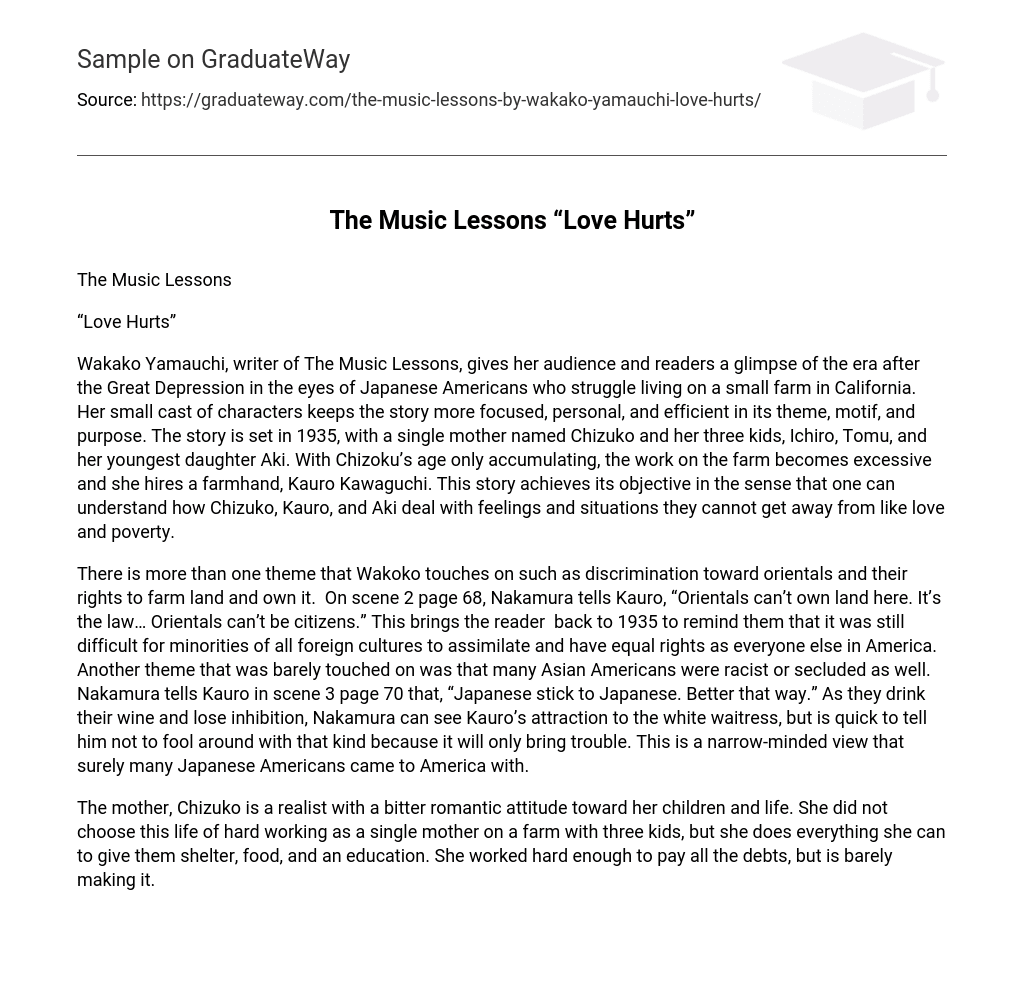The Music Lessons
“Love Hurts”
Wakako Yamauchi, writer of The Music Lessons, gives her audience and readers a glimpse of the era after the Great Depression in the eyes of Japanese Americans who struggle living on a small farm in California. Her small cast of characters keeps the story more focused, personal, and efficient in its theme, motif, and purpose. The story is set in 1935, with a single mother named Chizuko and her three kids, Ichiro, Tomu, and her youngest daughter Aki. With Chizoku’s age only accumulating, the work on the farm becomes excessive and she hires a farmhand, Kauro Kawaguchi. This story achieves its objective in the sense that one can understand how Chizuko, Kauro, and Aki deal with feelings and situations they cannot get away from like love and poverty.
There is more than one theme that Wakoko touches on such as discrimination toward orientals and their rights to farm land and own it. On scene 2 page 68, Nakamura tells Kauro, “Orientals can’t own land here. It’s the law… Orientals can’t be citizens.” This brings the reader back to 1935 to remind them that it was still difficult for minorities of all foreign cultures to assimilate and have equal rights as everyone else in America. Another theme that was barely touched on was that many Asian Americans were racist or secluded as well. Nakamura tells Kauro in scene 3 page 70 that, “Japanese stick to Japanese. Better that way.” As they drink their wine and lose inhibition, Nakamura can see Kauro’s attraction to the white waitress, but is quick to tell him not to fool around with that kind because it will only bring trouble. This is a narrow-minded view that surely many Japanese Americans came to America with.
The mother, Chizuko is a realist with a bitter romantic attitude toward her children and life. She did not choose this life of hard working as a single mother on a farm with three kids, but she does everything she can to give them shelter, food, and an education. She worked hard enough to pay all the debts, but is barely making it.





